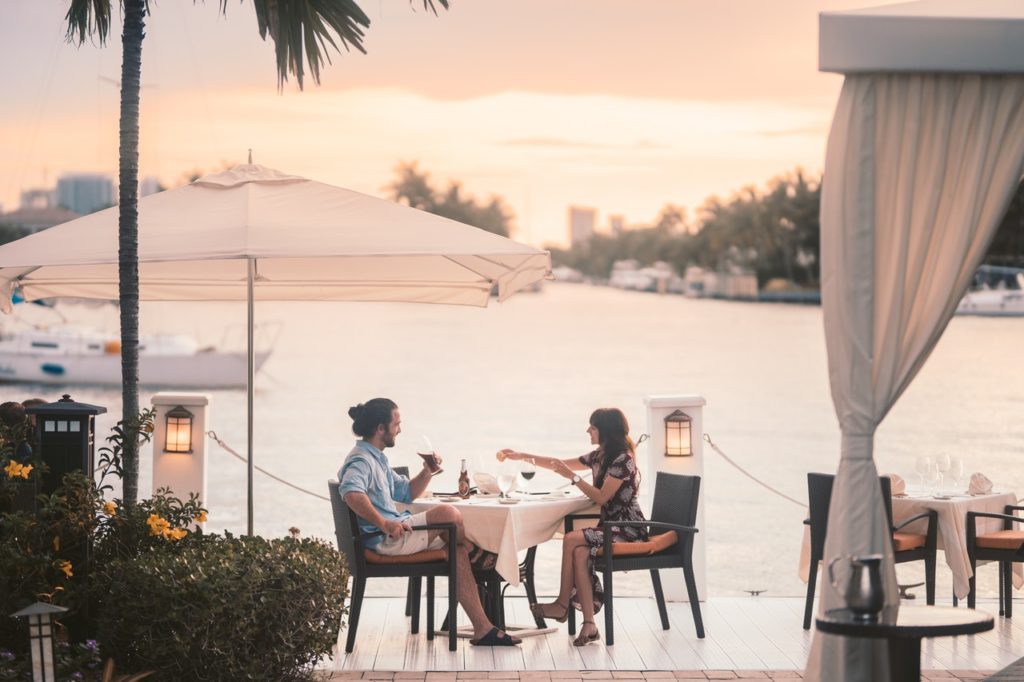Alfresco dining will return to help businesses in the hospitality industry. Restaurants, pubs, and similar establishments suffered immense losses at the height of the pandemic. More than that, these businesses are also considered to be major employers.
As the world begins to tread the slow road towards recovery, owners and entrepreneurs are also expected to do the same. Along with the easing of lockdowns and shelter-in-place measures, the alfresco scheme for dining is also set to be re-implemented. The Government hopes this initiative will allow the hospitality sector to recoup after such a tragic year.
Take It Outside
The narrow interiors of dining establishments make it difficult for customers to observe physical distancing. In fact, these establishments are considered to have the highest chances for people to be exposed to the virus. This is the primary reason businesses should look to outdoor, alfresco dining to fuel their hopes of recovery.
Providing outdoor dining options will help restaurants and similar places to operate fully while significantly lessening the risk of contracting the virus. Hospitality supports approximately 80,000 jobs in Westminster alone. Business owners and entrepreneurs in the hospitality sector should work with the lifeline the government provides.
Tried and Tested
The alfresco dining scheme is nothing new. It has already been implemented in the past for the same goals. When livelihoods were being threatened, the Government offered a simple solution. This made all the difference for struggling businesses that were at the end of their ropes.
From July to October, more than 560 premises in Westminster were issued pavement licenses, allowing them to extend the number of tables they could operate. The temporary pedestrianization of streets filled roads with tables and chairs. Businesses set up electric awnings commonly used for patios in front of their establishments to protect customers from sun and rain.
Traffic became restricted at certain times of the day. This truly transformed London into a giant European-style, outdoor cafe in the afternoons. It also helped to reinvigorate the deteriorating nightlife. Popular party spots were reawakened. Many in the hospitality sector weathered the global pandemic because of this sudden plan.
Another Go
A good majority within the Westminster council have decided to relaunch the alfresco scheme. This time, it’s considered a part of the Government’s plan to reopen the economy. Dozens of streets in Soho, Chinatown, Covent Garden, and Marylebone will once again be subjected to daytime and evening closures.
This plan’s reimplementation is expected to start on April 12 and continue until the end of September. Local authorities are also considering the possibility of longer-term alfresco schemes given the overwhelming support it received from residents.
They’re planning to consult with communities in the future. This could be integrated into the city’s major plans for recovery post-pandemic. The city is home to around 3,700 bars, pubs, and restaurants, which is more than any other area. Helping struggling businesses involved in the hospitality sector will definitely boost their local economy.
Amidst the Challenges
Businesses looking to recovery and even flourish in the post-pandemic era should begin applying for a pavement license as early as now. The Westminster council is aiming to simplify the application process for outdoor seating.
Establishments that applied in the previous year will surely have no problem acquiring another license. Local authorities are hoping these same establishments will be able to run on the first day of reopening. These are the necessary steps when applying for a pavement license.

Eligibility
First off, only certain businesses are eligible to get a pavement license. The Government only specifically lists pubs, restaurants, bars, cafes, snack bars, coffee shops, and ice cream parlors. Other premises that sell food and drinks, like supermarkets, are also able to apply.
Requirements
Businesses applying for pavement licenses should specify the premises they intend to place tables, chairs, and other furniture. These tables and chairs will be for the selling and consumption of food or drinks.
Pavement licenses will only be granted for use between 11 am to 11 pm. Businesses should include the specific days of the week and hours of each day they intend to use the highway. Dates and times must also coincide with the closures.
Highway Plan
A clear and legible highway plan is essential for pavement licenses as well. Businesses should ensure a minimum of 2.8 m footway depth along the length of the proposed premises. 2 m should be allocated for a pedestrian clearway, and the 0.8 m will be for the tables, chairs, and other furniture.
The drawing of the highway plan must be scaled. All immediate items of existing street furniture must be shown on the plan. There should be a clear definition between smoking and non-smoking areas. Tables or barrels that encourage eating or drinking while standing is highly discouraged.
In the face of extreme adversity, like the current global pandemic, businesses need to be adaptable. Business owners and entrepreneurs within the hospitality sector should not let this boon that the Government has prompted come to pass. Capitalize on this opportunity to help the business thrive despite the unfortunate circumstances.

